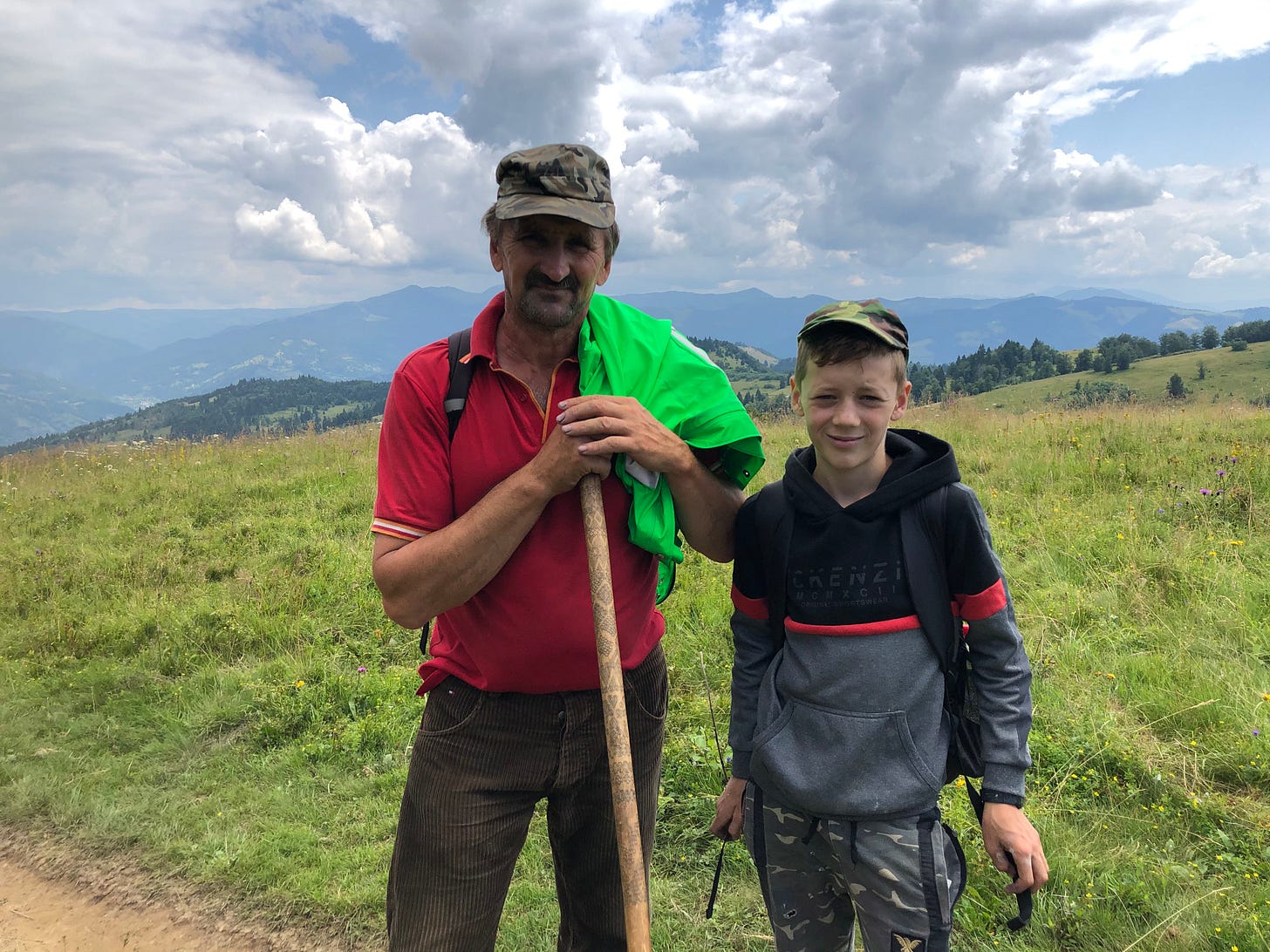Welcome to my Substack! The title, A Kind of Solution, is taken from the last line of Constantine Cavafy’s poem ‘Waiting for the Barbarians’ written in November 1898:
‘But what are we going to do without the barbarians?
They were, those people, a kind of solution.’
So, no barbarians after all. No deplorables either. And no invaders. Just people on the move, or staying at home. Full poem.
Without anyone to blame, we have to fall back on ourselves, and each other. To write, talk, listen, ponder, and find our own solutions. I’ve always loved contributing to the BBC’s From Our Own Correspondent programme. Here I promise you writing of that ilk, I hope, and more.
The launch of this Substack coincides with the printing of my new book:
To be published on 11 February 2025 in London by Yale University Press.
You can order it here Walking... or here Europe's or from your local bookshop.
The book is the fruit of six years hiking through the hills that surround my adopted homeland Hungary, at every opportunity. It’s a sequel to my Danube book, an attempt to answer the same question: ‘where does all this water come from?’ The Danube.
It is also a meditation on wilderness, and our need for a geographical place, a home, and a homeland.
Imagine a grand piano, on which all the visible keys and the strings
buried beneath the soundboard are streams and rivers, and the body
of the instrument is the mountains. Then imagine the piano is shaped
like a horseshoe, with the keys arranged, not just black and white, but
all the shades of greens and browns, yellows and reds, blues and greys,
spread from end to end all the way around the instrument, on the inside
as well as the outside rim. Then remember that a mountain absorbs but
does not emit light. The piano rises dark and promising at the geographical
centre of Europe, with the lights of towns and villages and cities
flickering all around it.
The Hungarians talk a lot about the Carpathian Basin, but in this book I cross the high mountain ridges to see what the mountains look like from the other side, as well. It’s not a guide book for mountain climbers. I don’t scale all the peaks. I realised early on that local people don’t climb mountains, though they follow the footpath for a while, with a dog or a herd of sheep. I’m mostly interested in the people - the Slovaks and Czechs, the Poles and Lemkos, the Boikos and Hutsuls, the Ruthenians and Ukrainians, the Hungarians and Romanians and Szeklers, the Carpathian Germans, the Gypsies and the Jews, the emigrants and the immigrants, the elderly and the young and the very young, and all the other folk who have found their homes in the mountains. Either because they were born there, or wandered through at some point, and fell in love with the curl of the horizon, or what lay just this side of it.
I was once asked by an interviewer why I support migration. I’m neither for it, nor against it, I replied, it just is. I’m a migrant myself, so how could I oppose the right of anyone to go where they like? But I have a strong sense of belonging, as all migrants have, a strong sense of home. I was fortunate to travel of my own free will. Many migrants are not so lucky, forced to leave their homes by violence, or hunger. I wrote about that in another book:
So this will also be a ‘home page’, as well as a travelling page. A page about the delights of home, and the road.
Initially, everything will be free, but after a while, some content will be for paid subscribers only. That section will also include an audio podcast, called Mountains and Rivers, and a chat function, for us to talk. There might even be some video.
Laurie Anderson, in her remarkable version of Cavafy’s poems, performed in Saint Thomas Church in New York in October 2024 [Waiting for the Barbarians - Laurie Anderson], added a new line: ‘perhaps we are the Barbarians now'. Only time will tell.




